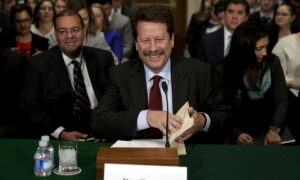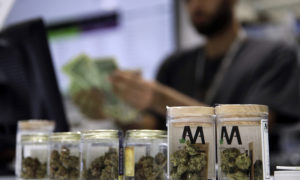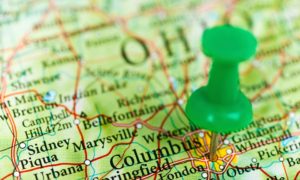If approved by voters, Measure D would allow the city to tax up to 8 percent of gross receipts or $25 per square foot of growing area for marijuana businesses.

Should Santa Rosa tax cannabis businesses to help offset the cost of regulating the fast-growing industry?
That question will be answered by voters, who will decide the fate of Measure D on the June 6 ballot.
There is no formal opposition to the measure. Tawnie Logan, executive director of the Sonoma County Growers Alliance, said her group of cannabis growers supports the city’s plan.
“It’s a good framework that’s representative of a tax structure that’s more approachable for the industry,” Logan said. “It’s still a little high but it’s far more accessible than the rates proposed by the county.
If approved by voters, Measure D would allow the city to tax up to 8 percent of gross receipts or $25 per square foot of growing area for marijuana businesses, although the city has signaled its plan to start with much lower rates.
Cannabis businesses in the unincorporated areas of Sonoma County face much steeper taxes under a measure approved by county voters in March. It allows the county to tax cannabis businesses up to 10 percent and doesn’t lock in rate increments. Marijuana industry players, including the growers alliance, opposed the ballot measure, which passed by a 3-to-1 ratio.
State law requires any new local excise taxes be approved by voters.
Santa Rosa City Councilman Chris Rogers, a member of the council’s three-person cannabis policy subcommittee, said he believes the city’s measure strikes a balance between making sure the city can cover costs associated with the newly regulated local pot industry and “not setting the tax so high it gives people incentive to stay in the black market.”
“We know this industry will have a significant impact on Santa Rosa and making sure we regulate it and control it in a way that’s beneficial to all is key,” Rogers said.
Santa Rosa cultivators would initially be taxed at 2 percent of gross receipts or $5 per square foot of cultivation space. The starting rates for dispensaries would be 3 percent and it would be 1 percent for manufacturers.
The starting rates are expected to raise $1 million for the city.
These tax levels wouldn’t change for two years, and any subsequent increases would also be locked in place for two years. A supermajority of five votes on the seven-person City Council would be needed to increase the rates above 5 percent.
All taxes collected under the ordinance would be placed in the city’s general fund and may be used for any purpose. City officials have said the tax would allow it to address the impact of the cannabis industry while bolstering revenues for general city purposes.







































